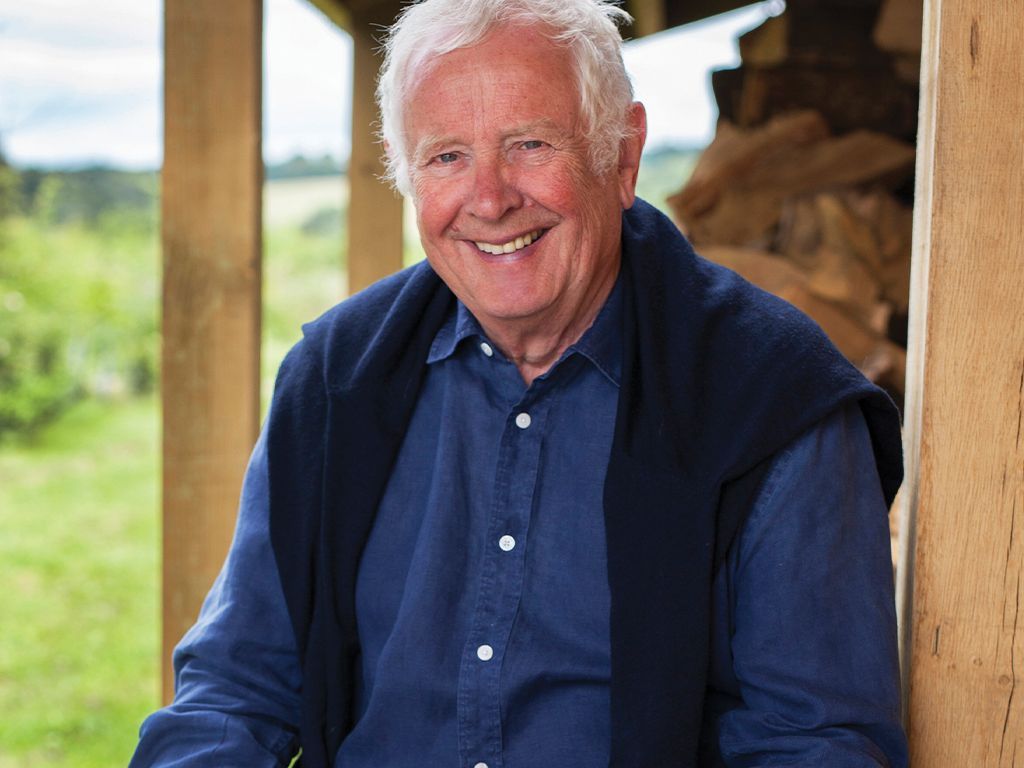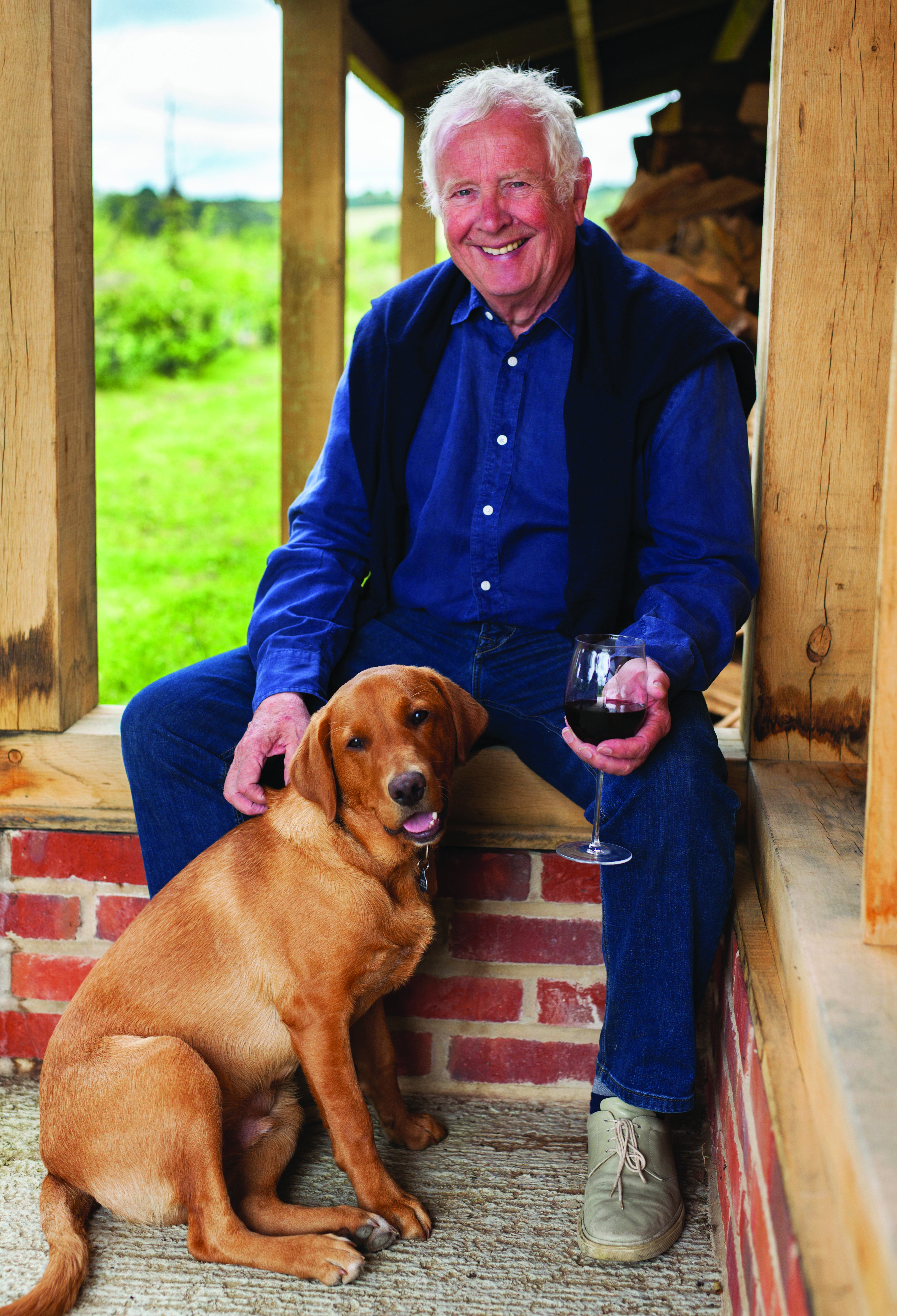Credit: Laithwaites
Tony Laithwaite knows a thing or two about wine.
Hailing from Lancashire County in northwestern England (and coincidentally my own fam’s homeland; alright, Blackpool?), Laithwaite founded his eponymous brand in 1969 – then called Bordeaux Direct – with just five French varietals, 150 customers, and a desire to bring authentic, small-batch wine to sip-searching citizens of the United Kingdom. Today, Laithwaites boasts over 1,500 globally sourced wines, 750,000 worldwide customers, and 50 years in the biz. As if those achievements weren’t their own indicators of wild success, Laithwaite was recently awarded one of Britain’s highest honors – Commander of the Most Excellent Order of the British Empire, or CBE for short – for services to the UK and to the wine industry. Talk about toast-worthy. Read on for our exclusive interview with Tony: the man, the myth, the wizard of wine.
Rue La La: What do you think makes Laithwaites a go-to for wine discovery?
Tony Laithwaite: Because we’ve always dared to champion new wines. It’s an obsession. Sticking to familiar names is probably a safer commercial bet. But we at Laithwaites – all of us – are driven to drive on into the night to the next vineyard because there might always be something wonderful and new. It’s our Holy Grail – the perfect wine.
RLL: The human element is an important pillar of Laithwaites. How have your relationships with growers and winemakers shaped your view of the industry over the years?
TL: Utterly and totally. I didn’t learn wine from books. Or blogs. Winemakers taught me all I know. Not a day goes by without learning something new from them. It’s a very special world, our world. The best. Come on in.
RLL: What was your inspiration when selecting these wines for Rue La La Members?
TL: We wanted to take you on a bit of a world tasting tour, give you something for different occasions, and make the journey as much fun as possible.
RLL: You were initially studying geography in college – how did you decide to make the leap to the wine life?
TL: Life decided for me. I’d already spent a summer working on a bottling line for a Bordeaux winery, and when I had to write a dissertation for my course I chose to visit again and write about the wine region I knew, Saint Émilion and its neighbors. After college, I went happily back to the bottling line. But they let me do a day course at Bordeaux University and eventually suggested I start selling and delivering their wine to wine lovers in the UK. I became a long-distance wine delivery driver.
RLL: Are there any new, up-and-coming wine-producing regions that you’re excited about?
TL: How long do you have? In Europe, not exactly new, but certainly up-and-coming are the Mediterranean vineyards of France, southern Italy, including Sicily and Sardinia. There’s Slovenia, Croatia, Turkey, and Moldova. In Spain there’s Cariñena and the regions of the “green” Northwest. And there is England. Whoever would have thought? Elsewhere, New Zealand continues to astound us. Longer term, China is determined to wow us one day. Watch this space.
RLL: What do you believe a good bottle of wine has the power to do for a conversation, a meal, a gathering of friends?
TL: A good wine can truly make your day. It gets us through life’s little difficulties like nothing else. Always has. It sparks conversation. Wine was making social connections centuries before Facebook arrived. In fact, wine was probably first enjoyed about 8,000 years ago. Shortly after, we invented what we call “civilization.” I’m sure there’s a connection. Wine is very important.
RLL: You were one of the first to enter the English sparkling wine industry. How does English sparkling differ from others?
TL: Perhaps more important is that it doesn’t differ greatly from French Champagne. Southern English vineyards grow on the same bedrock of chalk as Champagne. The climates are similar, relatively cool for winegrowing. England cannot make a good Prosecco style (Italy’s great crowd-pleaser), as our weather is too cold. But Champagne style is no problem.
RLL: Are there other countries and regions that you have opened?
TL: Plenty. We pioneered bottles from Languedoc and Roussillon in southern France, regions of Spain like Jumilla and Navarra. It was the American writer Burton Anderson who escorted me round parts of Italy that nobody except the locals really knew about. Is there anywhere in Italy that doesn’t make wine? The most dramatic discovery for me was New Zealand. Who knew about New Zealand wine? Even New Zealand didn’t. On my first visit we had to drink wine from teacups. No wine glasses! Then I found this Irish guy, Ernie Hunter, who made a Sauvignon that exploded your mouth, and brought him and his Savvy Blanc to London where he won all the awards going, a success that was even debated in the New Zealand Parliament. That was when the whole world first realized it had a great new wine country. They make The Jumper (wooly jumpers, i.e., sheep… it’s a New Zealand joke. Their wine is better than their jokes.). The Jumper is in this case we’ve put together for our Rue Members, and I’m excited for you to try it!
RLL: If you could only drink one bottle with one meal for the rest of your life, what would the wine and the meal be?
TL: What a terrible thought. Variety is what I crave. But if it had to be one thing, it would be a fish dish I first saw in the Cinque Terre wine region of Italy on the Ligurian coast. Lots of different pieces of fish, and different seafoods, and lots of different vegetables (I’m being cunning because this dish comes out different every time I make it). But it’s still one dish, isn’t it? With it? Well… Champagne. Or Champagne’s gorgeous young English sister. You never tire of Champagne. As Lily Bollinger once said, “I drink Champagne when I’m happy and when I’m sad. Sometimes I drink it when I’m alone. When I have company, I consider it obligatory. I trifle with it if I’m not hungry and drink it when I am. Otherwise, I never touch it – unless I’m thirsty.” It’s a pretty all-purpose wine.
RLL: I think most of us would agree with Lily! Why is it important to you to bring high-quality, small-batch wine options to the rest of the world?
TL: It’s how I spread a little happiness. I don’t know a better way.
Cheers!
By Emma Lifvergren, Staff Writer




